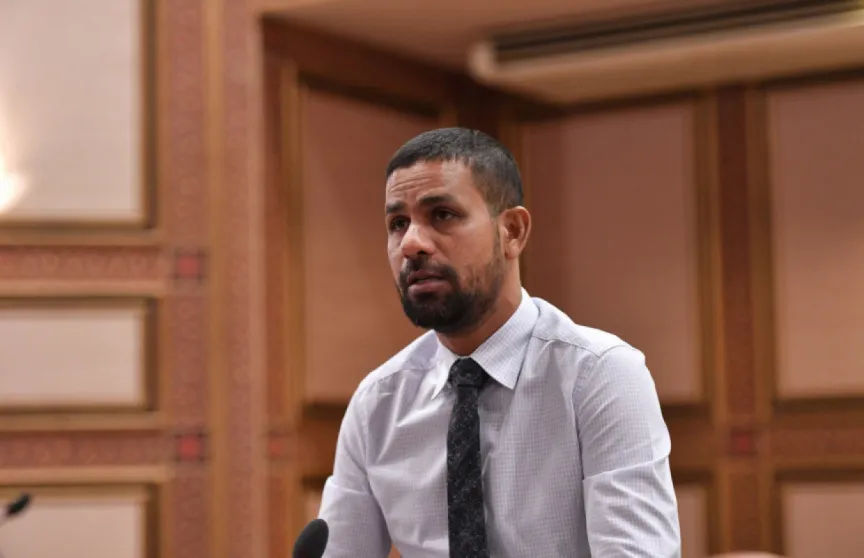MALE’, Maldives — As parliament members gathered to investigate a suspicious $2.8 million advance payment for an unbuilt office building, news broke of another questionable contract — this time involving a teenage signatory and an $5.2 million cold storage facility.
The Finance Committee of the Parliament voted to launch a criminal investigation into North Coast Construction, a company owned by former parliamentarian Ali Hameed, after it failed to begin construction despite receiving 44 million rufiyaa ($2.8 million) in advance payments, in 2016, from the state health insurance provider Aasandha.

“This has all the markings of a scam,” said Ahmed Nazim, the deputy speaker of parliament, during the committee meeting. The committee unanimously voted to terminate the contract and recover the advance payment.
But even as lawmakers deliberated, screens flashed news of another major government contract: an 80 million rufiyaa ($5.2 million) deal awarded to ROS Trading Company of Saudi Arabia to build a cold storage facility in M. Mulak — coincidentally, in Mr. Nazim’s own constituency.
What caught attention wasn’t just the contract’s size, but photographs showing what appeared to be a remarkably young deputy director signing for the Saudi firm. The images have sparked fresh concerns about oversight in government contracting.

The situation mirrors a pattern of questionable government contracts that have plagued the island nation in recent years. Local anti-corruption activists say such cases often follow a familiar script: large advance payments, incomplete projects, and minimal consequences for the contractors involved.
The cold storage project, scheduled to be completed within 300 days, is designed to store 50 tonnes of fish daily. The contract was signed by Fisheries Ministry Director General Inas Naseer and ROS Trading Company’s Deputy Director Hamad Mohammed Alminhali, whose youthful appearance in signing photographs has raised eyebrows among local media and politicians.
“The North Coast case represents a systemic issue in how government contracts are awarded and monitored,” said Ibrahim Hassan, a former civil servant turned political analyst in Male’. “The fact that a company received such a substantial advance payment without apparent capacity to complete the work suggests serious lapses in due diligence.”
The timing of these revelations has particularly irked public sentiment. The Maldives, known for its luxury tourism, has been grappling with economic challenges and rising public debt.
The parliamentary committee’s decision to involve law enforcement in the North Coast Construction case marks a departure from typical handling of such matters. However, skepticism remains about whether this will lead to meaningful accountability.
Meanwhile, the cold storage facility contract has raised questions about the government’s procurement processes and the verification of contractors’ credentials. Local media reports suggest that despite the project’s significance for the fishing community, little is known about ROS Trading Company’s track record in similar construction projects.
As police begin their investigation into the North Coast Construction case, the incident adds to a growing list of controversial government contracts that have attracted public scrutiny but rarely resulted in successful prosecutions or recovery of public funds.









